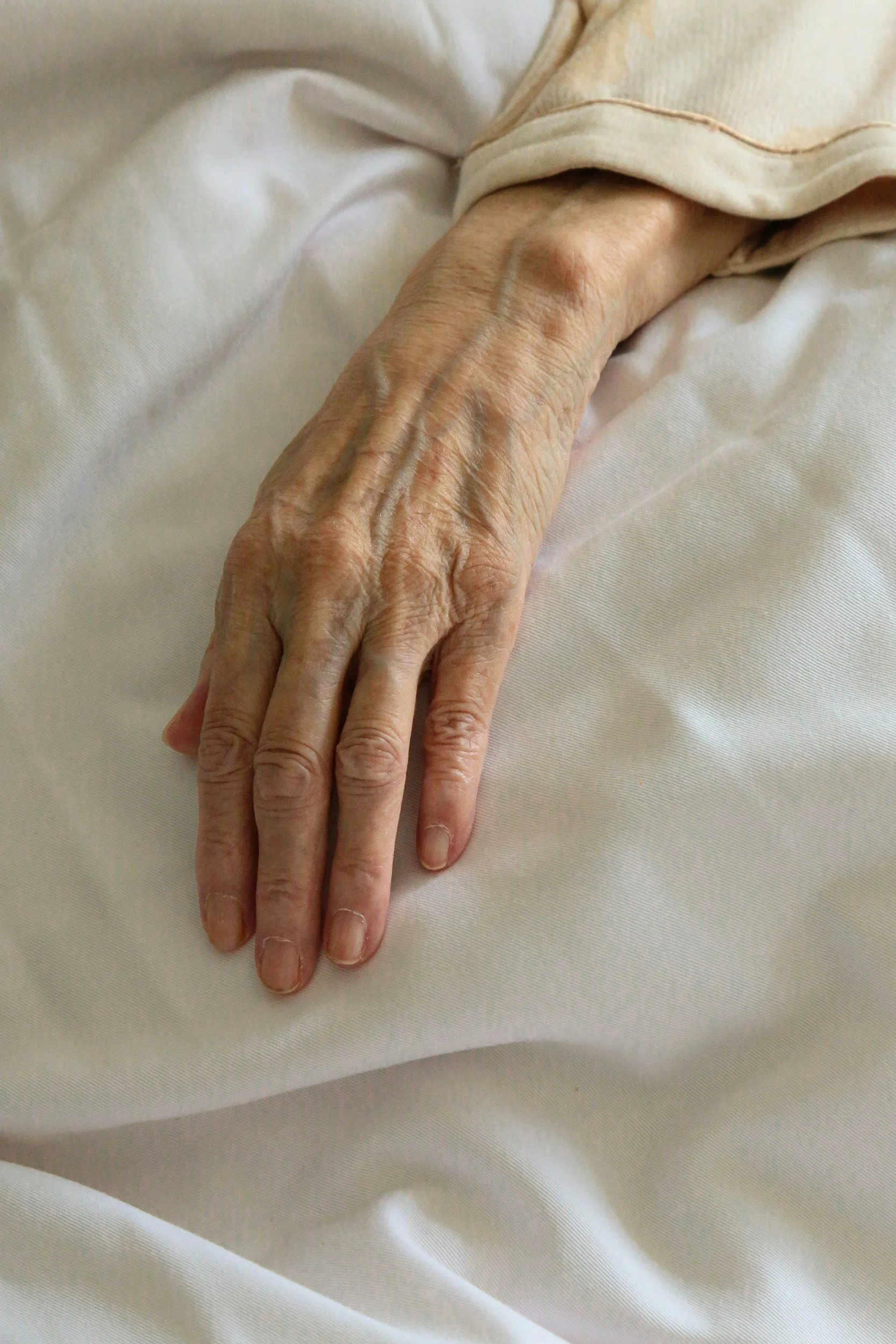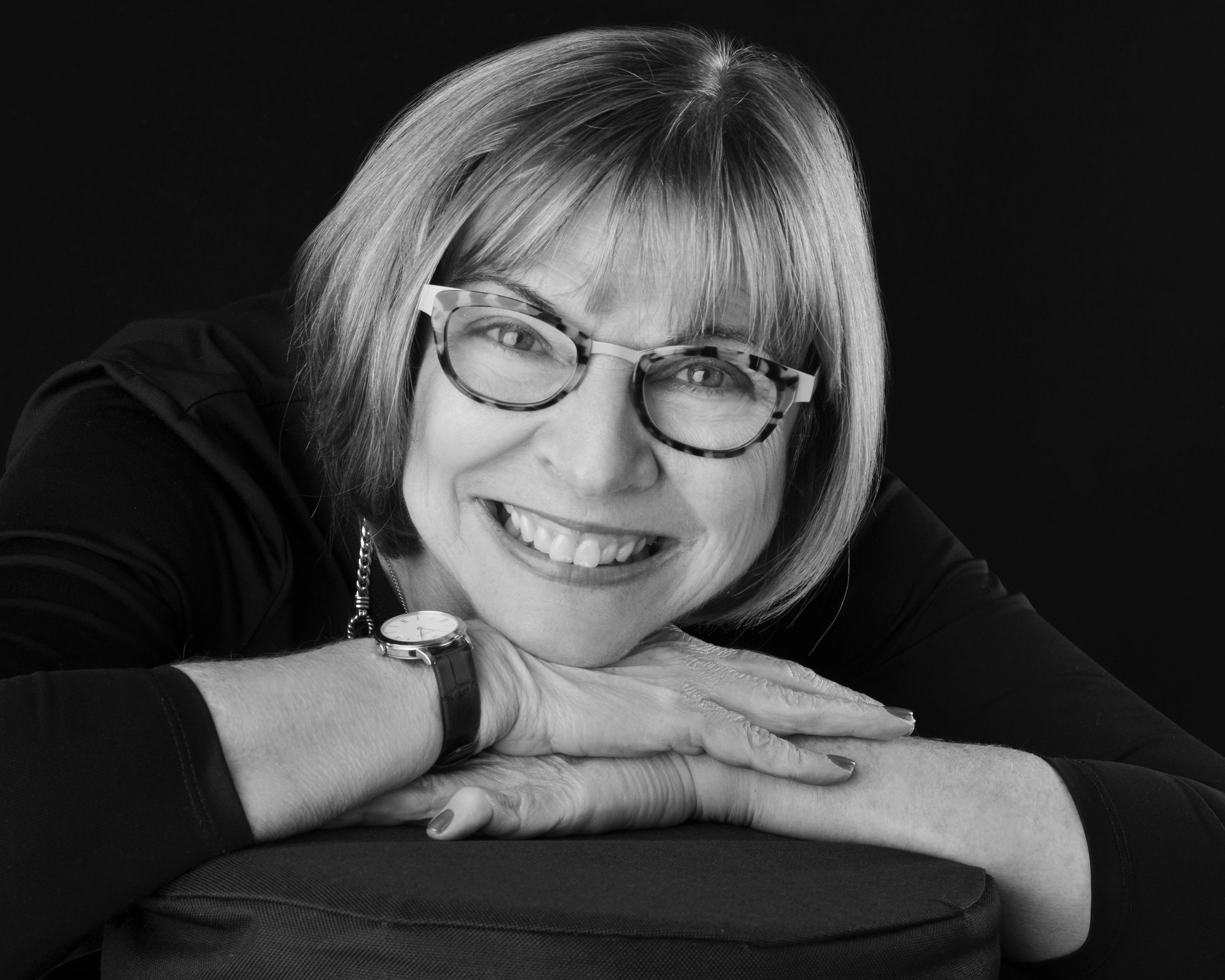My Three Griefs
“Death is not the greatest loss in life; the greatest loss is what dies inside us as we live.” ~Norman Cousins
“John has dementia, probably Alzheimer’s.” The diagnosis came at us like an arrow shot from a crossbow. The arrow went straight through my husband and embedded itself in me. Of course, the disease was inoperable and couldn’t be treated. We both knew the outcome. There was nothing to do but carry on regardless of pain or grief.
Grief is a human condition, known to all people in all cultures across all time. I was not alone, but the grief that befalls the Alzheimer’s Disease caregiver is unlike others. It is longer, deeper, and more complex than the grief associated with sudden death or a relatively brief illness. There are three kinds that I felt: the hidden kind, the killing kind, and the shared kind. The last is the least hurtful and the most public. All three preside over Alzheimer’s care. The literature identifies the griefs this way: disenfranchised grief or the unsanctioned and unacknowledged grief that accompanies early diagnosis of Alzheimer’s Disease; anticipatory grief as the loved one nears death, and traditional grief or mourning after death. It is a sequence known to most Alzheimer caregivers.
John wanted his diagnosis kept secret. He thought nothing could be more distasteful than pity. The first grief, a disenfranchised grief descended, unrecognized by others, as silent and sinister as a black submarine. It was hidden, no one saw it and no one soothed it. Our griefs were experienced separately, but camouflage and denial can only last so long.
The crisis began on a Friday night when my husband came home from work late and literally fell into bed, too tired to undress or say anything. I was already in bed but noted he had not turned out the lights. I got up and discovered he had also left the door to the house open. Wide open. When I went to shut it, I discovered he had left his car running with its lights on and that door open too. The dog was running free. I shut the car off, called the dog in, locked up, and resolved our lives had to change. That was fifteen years ago.
I learned as we went along, year over year. There was little support though the grief literature exploded in recent years, (Google recently produced over 11 million hits for caregiver grief). Yet, the unique grief experienced by caregivers administering to loved ones with Alzheimer’s disease and other long-term dementias is still given scant attention.
My husband left the water on and the refrigerator and freezer doors open. Three years in, he broke things and lost all sense of time. Four years in, he troubled me throughout the night, sometimes to cook for him or to do the laundry at one or two a.m. John started suffering delusions. Five years in, he saw other people in the room, staring at us. Some he knew, some he didn’t. He grew more fearful over time. Every change brought more grief, more pain, to him, to me, to both of us.
Eight years passed. I drove the same car, lived at the same address, cooked for the same number of people, but nothing was the same. Nothing. I watched in horror as he watched himself disappear. His doctor said, “It’s hardest on the brilliant. They compensate until they can’t.” I couldn’t compensate at all. While my husband’s brain shrank, my heart broke. He still exercised on the elliptical machine and lifted weights. His appearance changed little, but his beliefs, memory, self-awareness, identity, values, even his personality—these passed away. His life mission, as a renowned researcher and university leader irretrievably lost, my mission severely hampered too, our dreams and plans all ashes. I grieved to no one’s notice.
It is hard to bring a rational perspective to an irrational problem. I tried to understand my husband’s needs and daily wants, but I couldn’t. I was still working full-time. I struggled to keep up cleaning and caring for him, but without a single good night’s sleep, I became more and more exhausted. I hired in-home help. He detested anyone in our condo and complained all the time. It hurt me to watch him try so hard to recover what he couldn’t. The horror was that he knew, he was aware of his lost intellect and competence.
Nine years in, John came to believe everything he saw on TV. He watched Dr. Phil religiously and transferred the cases to me, bludgeoning me with accusations that were heartrending. He thought I was seeing other men, thought I stopped alongside the road for “quickies.” I felt uncomfortable, undone, unloved. My husband tried to hit me, yet he begged me not “to kick him to the curb.” I didn’t think the hurt could be any greater. I pounded and pounded my pillow on the bed.
I toured a variety of residential memory care facilities then and chose what I thought was best for him. I took him to visit. The facility was sunny, clean, and the layout largely matched our condo. He agreed on the choice and entered professional memory care in the summer of 2017. I brought books and newspapers to read aloud because he could not read or use a calendar. His favorite song was “Moon River” and I sang it to him often. I hung a customized poster with family pictures across from his bed. A print of his favorite painting, “Valley of the Yosemite” by Albert Bierstadt adorned the wall. I felt like dying.
Three more years passed. My loved one was still loved. I rose at 5 a.m., got ready for work, drove 25 minutes to the assisted living home, had breakfast with John, drove 40 minutes to the university during the height of our city’s rush-hour traffic, worked for ten hours, drove 20 minutes home, ate little, and crashed into bed. Sometimes I was so exhausted, I locked my office door and crawled under my desk to sleep a bit even before I went home for the night. I was a college dean and responsible for five hundred employees and thousands of students. My sister came down with a terminal disease on the west coast. I couldn’t maintain the workload or my health. I retired and cared for John as well as my sister, flying between my Ohio home and California every two to three weeks.
My sister died. Then, COVID hit. I couldn’t visit John for four months and only then with extreme rigamarole, masks, sign-in’s, time limits, temperature taking, visitation limits. In the words of the 23rd Psalm, I felt like I was walking through the valley of the shadow of death. My choir folded down during the COVID pandemic. Singing had been an important outlet for me. I started a blog, teaching myself the technology to channel my energies into something purposeful, but then developed carpal tunnel syndrome. I joined a caregiver support group, but no one spoke of death or grief, only hardship. I exercised. I tried to bear everything with strength and grace and I continued to grieve. A friend told me I needed to learn compassion. That jolted me. Wasn’t I already compassionate? A good person? But no, she meant compassion for myself.
When I could see my husband again, he was still John, but had lost all autonomy. He knew me—sometimes. I had grieved for ten years. With John in hospice now, my second grief felt different. It was anticipatory grief. The shadow of death was longer, taller, and lurked closer. As John deteriorated, I remained connected to him. I was taught as a girl not to rock the boat, not to complain, to think of others first, to comply and compromise. So, I kept quiet, my emotions frozen. Corrupted by sadness, this grief grew like spring grass, yet it felt as old as the stars.
No one wants to hear about dying, and death is a thing kept in the closet, even within my support group. Caregivers like me receive almost nothing but heart ache. The hurt penetrated all the way to my core. It was not self-pity; it was grief and it was lonely.
No one brought me casseroles or sent me cards and no one gets a week off work to grieve a husband dying but not yet dead. His friends wandered off. They said, “But he’s still alive, isn’t he?” Well, yes. But also no. Another said, “He’s as strong as an ox!” Yes, that’s true. But I was not. I needed support.
I don’t know how John continued. I call it his animal lust for life, all primal instinct. But maybe it was not so much him that fought to rebound and persevere as it was his microbiota, the billions and trillions of microscopic organisms fighting tenaciously for life, signaling stay, stay! Maybe they didn’t want to let go. Perhaps the John I knew was not there, but also disenfranchised, deprived even of the right to citizenship inside his own mind.
I watched him die in inches. He lost his senses, one at a time. First, sound; John was almost deaf, but the process was contradictory. Sometimes John heard whispers and sometimes he heard nothing. Then sight, smell, and taste diminished. He loved sweets but rejected his old favorites of blueberry muffins and chocolate. Touch would be the last to go. He developed tremors. He couldn’t stand, or chew, but always wanted to eat. He couldn’t speak but three words at a time and those were hesitant and obscure. I saw my husband in a death spiral. I felt a grief that was kettle drum deep and as off-key as a clarinet in a child’s hands. Only I could hear it though. It reverberated in me, but death took its time.
When alone, I reflected. Who are we supposed to be as caregivers, as tender as the Virgin Mary or as caring as Mother Teresa, exhibiting a devotion so grand it wipes out our very being? Caring for dementia is not like taking care of a child where you know your attentive contributions will “pay off” in growth. With dementia there is no giving back, no dawning of understanding, no quid pro quo, and no progress.
Alzheimer’s has been called the disease for the destruction of daughters, a ruination of women in the sandwich generation caring for children and parents. May I add mates? The person I wanted to be was rubbed out just as surely as John was with his dementia. I lost opportunity, then ambition, competitiveness, and drive to be a leader. My aspirations changed and the change was irrevocable. John was unaware. Where did I take pleasure? Not by his bedside, yet I kept returning to it.
I received a call about 9:30 AM, time to come. Death didn’t happen like I thought it would. It came on a sunny morning accompanied by bird song. Late June 2021. I ran out the door. I wanted to ensure that my husband was not alone, that he didn’t suffer from fear. I wanted to watch him take his last breaths peacefully, like a fish sipping air. And I wanted simply to hold his hand.
When I arrived, I rushed to John’s room. I thought I would make it but I hadn’t. He was still warm when I arrived, his body still soft, but he was gone. I closed his eyes and said, “Oh John, oh John!” and started crying. I didn’t know my nose started bleeding too, dripping on the carpet, smearing the bedspread. Staff panicked when they saw the blood. One asked for my phone to call for support. Instantly, my phone was covered with blood too. I clutched it tight; I couldn’t see and couldn’t use the phone at all. My eyes were filled with John, and I couldn’t process anything else. The staff talked to me, but I didn’t hear them. Finally, they pulled me off John. They cleaned up the blood. I went outside to sit in the sunshine and gather myself. I don’t know how much time passed. When I came in, John’s body was gone.
I thought I was prepared for the aftermath, but I wasn’t. It is not something you can hold a dress rehearsal for. Talking to relatives. Answering questions. Planning the memorial services. Taking care of paperwork. Each obligation came with its own pain.
More grief. A different kind, the one observed and recognized by others, decorated with cards and sentiments. Even that was not as I thought, not as Kubler-Ross described in her iconic book, On Death and Dying. This was all her stages, all the time, blending without boundaries. There was no fight left in me. The atmosphere changed. It became thicker and harder to move through. I felt weak, as if my insides had dissolved. I was forgetful and sad. Some days I did not get out of bed, I was limp and tired, my thoughts as pale and lifeless as an Arctic moon.
One grief does not buffer the next and this last grief, the third grief, was inevitable. But it was different. I watched my arms shake in the tub. I watched my legs shake while sitting. They looked like foreign objects – not part of me, but something strange and alien. John was gone and this last grief was unfathomable.
My friends tried to commiserate with me . They said, “He is in a better place.” Maybe, who knows? They said, “He is suffering no longer.” No, but I was. I missed John. I felt sad and I didn’t know what to do with my days. There was such a void, all those hours planning to see him, traveling to and fro, seeing him, thinking of him, coddling him, feeling anxious for his care. I realized, the more vulnerable John became, and the more I cared for him, the more I loved him. It was as simple as that. I had lost him long before as a husband, but something new grew in place. I loved John tenderly, deeply. I had cradled him in his wheelchair like a child. My grief, I realized, was as a mother losing a son and no parent wants to bury her child.
I learned a deeper compassion in my sorrow. Maybe it’s that way for all of us. There is nothing more for me to do now, but finally, fully let go.
The grief due to Alzheimer Disease and similar dementias feels unending to family caregivers. At first, everything matters, then nothing does. This grief is vicious, demanding, and lonely, but it is not the kind that screams. Instead, it is systemic, a heaviness that pervades every part of the caregiver’s life with a deep long-term sadness that I, for one, still carry.
Every grief may be unique but there are commonalities. I am like so many others. With Alzheimer’s Disease, caregivers cannot locate before or after their loss. Which loss? The death of relationship, identity, mind, or finally, body? There are too many and the time is too long among them all. Each loss is major, but compounded, the loss is indescribable. Caregiver reactions are varied too, or varied in order, but worry, fatigue, despair, resentment, hopelessness, decreased appetite, poor self-care, loneliness, anger, distrust, numbness, depression, and a loss in self-esteem, creativity and work productivity, are all commonplace.
Caregivers for Alzheimer’s Disease need to be acknowledged for their pain and grief and they need attention throughout the long journey of their loved one’s decline, before and after their loved one’s death. Neither they nor their loved one with Alzheimer’s Disease should be neglected. They need compassion and a steady stream of kindness and support. Sometimes the smallest touch might be the greatest gift. Most caregivers for Alzheimer’s Disease will also need help, perhaps therapy, to learn coping methods, to heal from grief, three kinds of grief and to build back their lives. Love can be known and grown again. I can bear witness.
-Cheryl Achterberg
Cheryl Achterberg writes personal essays after a career as a nutrition educator and academic leader. Her work has appeared in Brevity Nonfiction Blog, Oh Reader, The Sun, The Wall Street Journal, Nutrition Today and the Columbus Dispatch. When not reading or writing, she is riding her electric bike, eating chocolate, or loving on a dog. She lives on the Front Range in Colorado. Find her online at cherylachterberg.net or on Twitter at dr_achterberg.








